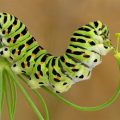PTE考生目前最大的问题之一就是练习题缺乏。除了有限的基本官方书(PLUS,Testbuilder, OG)之外,就没有题了。很多英语基础不是很扎实的同学很难找到练习材料。墨尔本文波雅思PTE培训学校专门为墨尔本,悉尼PTE考生准备了适合PTE听力阅读练习的科学60秒。各位PTE同学可以练习PTE听力中的summarise spoken text和PTE口语中的retell lecture,PTE听力口语-科学60秒-Frosty Moss练习记笔记技巧和复述。废话少说,下面开始:
60秒科学:Environmental Crime Funds Terrorism
听力内容:
60秒科学节目(SSS)是科学美国人网站的一套广播栏目,英文名称:Scientific American – 60 Second Science,节目内容以科学报道为主,节目仅一分钟的时间,主要对当今的科学技术新发展作以简明、通俗的介绍,对于科学的发展如何影响人们的生活环境、健康状况及科学技术,提供了大量简明易懂的阐释。
In Somalia, the terrorist group al-Shabaab take in at least $38 million a year by felling trees illegally and burning them into charcoal. The activity is their largest source of cash. In Africa as a whole, the illegal charcoal trade—the main cooking fuel—most likely brings in more money than the illegal drug trade.
Taken together, all types of environmental crime—from smuggling elephant tusks to China to illegal dumping of toxic waste—generates as much as $213 billion for unsavory characters around the world. That’s according to a new report from the United Nations Environment Programme and Interpol.
The biggest chunk of that sum comes from forest crime—illicitly-cut-down rare timber, like teak, and other illegally harvested trees lost as exported pulp or wood chips. Then there’s the smuggling of wildlife, dead or alive. Poached ivory fetches at least $165 million a year in Asia while our closest living relatives—great apes like chimpanzees, gorillas and orangutans—are being kidnapped from the wild and sold to private collectors.
But environmental crime can be fought. For example, Brazil has dramatically reduced tree cutting in the Amazon with better enforcement, and east Africa has stepped up its ivory busts. And as consumers, we all can help curb crime by cutting the demand for these goods. Just say no.
—David Biello





